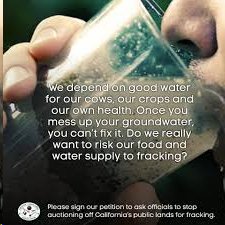The WV Commissioner of Agriculture would not answer this letter.
In early April, I sent this letter to Commissioner Walt Helmick:
Dear Commissioner Helmick:
Two or three weeks ago two acquaintances, April Keating and Diane Gooding, hand carried a letter I had written you. In essence it outlines the matter of the effect of a Marcellus drilling pad on my farm. I will recap that letter and ask you to reply to this one.
I live two miles East of the I-79 interchange at Jane Lew. Our principal product is Red Angus Certified feeder calves and includes timber and paid hunting. The farm is about 515 acres, half in timber.
Because of the location with respect to Interstate 79 and the fact we have over a mile of wide strip, it would be a prime spot to locate one, perhaps two well pads. The strip has the Jane Lew Soil Series, so is limey, and I have fed there for 30 years, so it is quite productive, as well as easy to get over. Some years ago the farm was chosen by the Soil Conservation District for an award.
The first well pad would take about 20 acres, since the strip is nearly half mile from the only feasible entry. As you are certainly aware, it could be tied up for 15 to 30 years and rocked beyond recovery for decades beyond that. Connecting lines would be cut through the woodland, which would tie it up for the life of the project, plus 70 years for merchantable timber to grow anew.
New fences would have to be built along both sides of the half mile on the hill and around the well pads. Today that road has cattle stops in it. Do you think a bunch of Texans would build a good fence for WV? What about supplying the electricity at some distance from the house? Pasture and hay would be dusted irregularly for the life of the project. Cattle would be affected by the noise, light and chemicals in the air.
At this point, loss of value and loss of production for my heirs would amount to [six figures]* A second pad would be an additional penalty of two thirds as much. That is a minimum. The worst would be contamination of the aquifer. It is a “dry” farm – I have to use water from our five wells almost every summer. If the aquifer is lost it would be reduced to a tree farm.
The oil and gas was leased by my predecessor-in-title some two “generations” back, in 1934. I have no problem with taking the gas out – and the other guy’s family getting the money. But the deal I am getting, in the “right to take it out,” certainly isn’t what the predecessor bargained for. I was born in ’34 and remember what it was like when I was 6 or 7 years old. Steel tubing derricks, one lung gas engines, fracking was nitroglycerin, trucks had six wheels, etc.
Commissioner, those of us in production agriculture are getting nailed to the wall with this thing! And even if we don’t make any difference, production is lost and future producing capacity is lost to society.
What I want to know is: Where is the agriculture establishment in this? Are those of you responsible for setting policy unaware? Surely some of you could pry yourselves away from Charleston and tour drilling sites, pipelines and compressor stations. In the “hot spots” these things are all over the landscape! It seems to me a phenomenon lasting two or three decades that will affect agriculture and timber for a century or two might be worth some public discussion. Of the 23,000+ farms and farm families of West Virginia, a very significant number will be affected.
We have a long history of extractive industry in West Virginia damaging soil and water, and leaving the state depressed. Looks like we are in it again! I think those of us who are farmers should get an answer!
Most Sincerely, S. Thomas Bond, Resident Farmer, Lewis County, WV
>>>>>>>>>>>>>
* The figure amounts to about one third of the property value for loss of value and production and extra expenses over 20 to 30 years.
I have understood for many years that there are at least two kinds of truth. The first is objective truth, which can be verified by observation, experiment, mathematics and reasoning. It is the stuff of science, and bookkeeping before accounting estimates and government rules are applied. It governs material things and honest people.
The second is called “truth” because it is promulgated by some Authority. Let’s call it “social truth.” People act on it because, if they don’t, the society around them is not kind to them. Unfortunately, this is the world of managing people using political power, legal actions, agency rules, financial manipulations, etc. Eminent domain is one tool now in use.
Commissioner Helmick is caught. He knows what the answers is, the objective truth. But he doesn’t have the strength to say it. Politics is very much a social construction and he simply can’t say it.
Such is the nature of big bucks in our society today. It will affect thousands, and amount to billions as subsidy to drillers and their investors, with great value taken from farmers and those other local rural residents not doing farming.
See also: WV Host Farms Program

